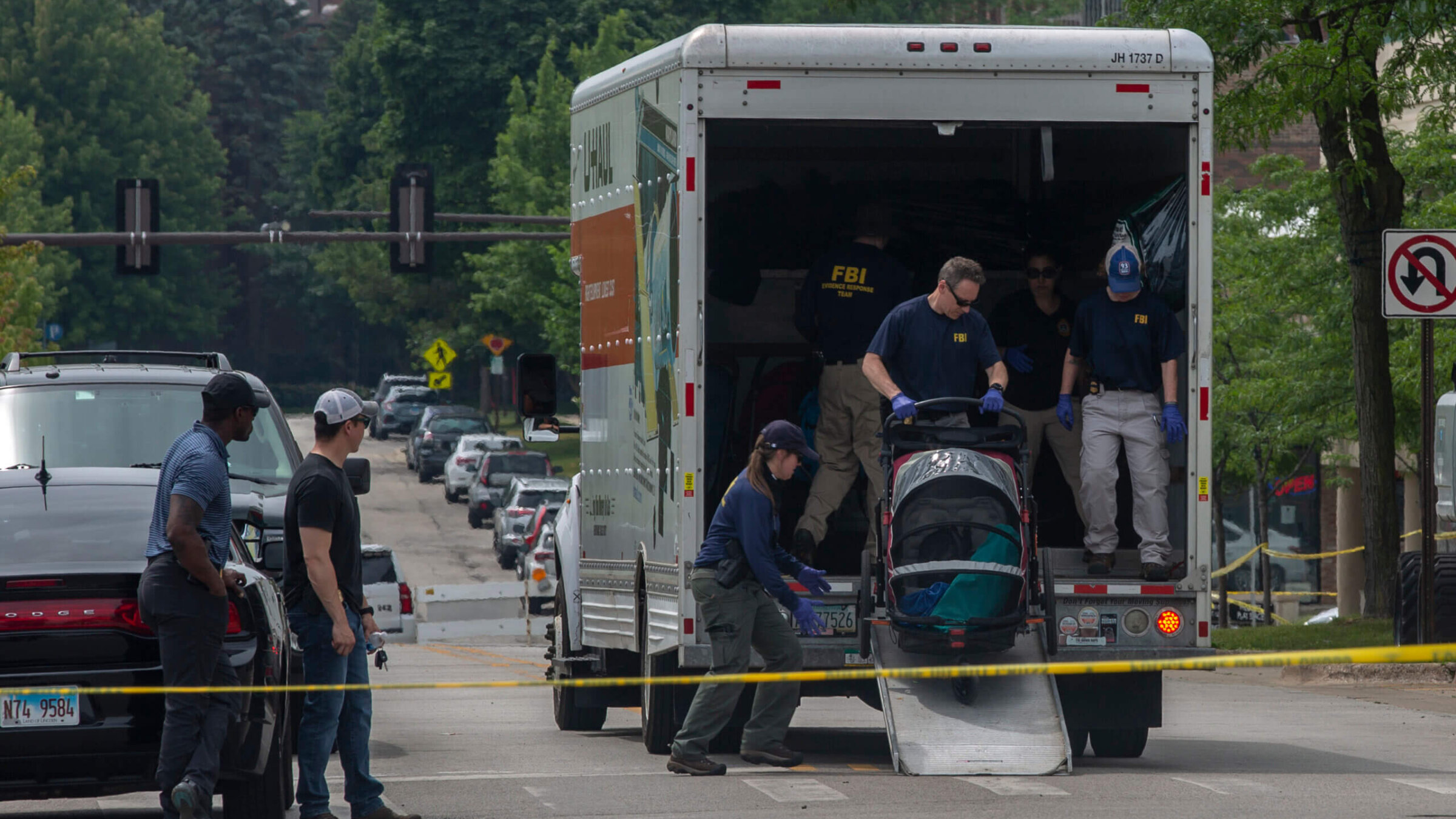Suspected Highland Park shooter pleads not guilty
Robert Crimo III faces 117 criminal charges, including 21 counts of first-degree murder

FBI agents clear abandoned strollers near the scene of the shooting at a Fourth of July parade in Highland Park, Illinois. Photo by Jim Vondruska/Getty Images
Robert Crimo III, the man accused in the July 4 parade shooting in Highland Park, Illinois, pleaded not guilty to 117 criminal charges on Wednesday. Crimo, who prosecutors say has confessed to the shooting, is accused of firing from the top of a building into the crowd, killing seven and wounding 48.
Charges against Crimo, 21, include 21 counts of first-degree murder, three counts for each victim killed. Speaking at a press conference Wednesday morning, Lake County State Attorney Erin Rinehart said that if Crimo is convicted of any two counts of first-degree murder, he will face a life sentence in prison without the possibility of parole.
Crimo was also charged with 48 counts of attempted first-degree murder and 48 counts of aggravated battery with a firearm.
Five of the seven victims killed at the July 4 shooting belonged to Jewish families: Irina and Kevin McCarthy, Katherine Goldstein, Jacki Sundheim and Stephen Straus.
Among those in the courtroom for the arraignment was Highland Park resident Ashley Beasley. “I’m here today because people from my community cannot be here,” said Beasley after the arraignment. “They’re not ready. They’re broken, living in fear, and I wanted to be here to be a presence for them.”
George Gomez, an attorney representing Crimo’s parents, also spoke at a press conference on Wednesday morning, saying they are devastated by what happened. “However, it is their son, and they’re trying to support Bobby Crimo III as much as possible,” he said.
Some in the community have questioned whether Crimo’s parents could be held criminally liable, as his father signed an affidavit supporting Crimo’s gun permit application despite the young man’s threats of violence.
“To be that irresponsible and signing off is mind-blowing to me,” Barbara Medina, a Highland Park resident, told CNN. “It’s a shock that it’s anybody in your town, that they could come in and do that to their own community.”














